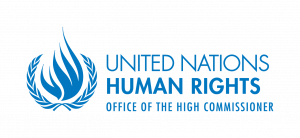
Office of the United Nations High Commissioner for Human Rights (OHCHR)
Haut-Commissariat des Nations Unies aux droits de l'homme (HCDH)
Oficina del Alto Comisionado para los Derechos Humanos (ACNUDH)
Search Open Yearbook
This information is part of the Open Yearbook, a free service of UIA's subscription-based Yearbook of International Organizations (YBIO). It includes profiles of non-profit organizations working worldwide in all fields of activity. The information contained in the profiles and search functionality of this free service are limited.
The full-featured Yearbook of International Organizations (YBIO) includes over 77,500 organization profiles, additional information in the profiles, sophisticated search functionality and data export. For more information about YBIO, please click here or contact us.
The UIA is a leading provider of information about international non-profit organizations. The aim of the Open Yearbook is to promote the activities of international non-governmental organizations (INGOs) and intergovernmental organizations (IGOs).
Contact Details
URL: https://www.ohchr.org/en/ohchr_homepage
Facebook: https://www.facebook.com/unitednationshumanrights/
Founded
1945-10-24
History
Available with paid subscription only.Aims
Represent the world's commitment to the promotion and protection of the full range of human rights and freedoms set out in the Universal Declaration of Human Rights.
Events
172 past events available with paid subscription only.Activities
Available with paid subscription only.Structure
Available with paid subscription only.Languages
Available with paid subscription only.Staff
Available with paid subscription only.Annual Budget
Available with paid subscription only.Finance
Available with paid subscription only.Relations with Inter-Governmental Organizations
Observer to: B-XB1112 - International Organization for Migration (IOM). Member of: E-XM1572 - Interagency Panel on Juvenile Justice (IPJJ); E-XE4205 - United Nations Sustainable Development Group (UNSDG); E-XE4201 - Inter-Agency Standing Committee (IASC). Cooperation agreement with: C-XD8574 - Islamic World Educational, Scientific and Cultural Organization (ICESCO); E-XE3879 - Organisation internationale de la Francophonie (OIF); UNESCO. Participates in: E-XE3596 - Peace Implementation Council. Links with:
- E-XE6009 - Committee on the Elimination of Discrimination against Women (CEDAW);
- B-XB0971 - FAO;
- B-XB2183 - ILO;
- F-XF1393 - International Bank for Reconstruction and Development (IBRD);
- F-XF2266 - International Monetary Fund (IMF);
- E-XE2288 - Joint United Nations Programme on HIV/AIDS (UNAIDS);
- E-XE3556 - Office of the United Nations Special Coordinator for the Middle East Process (UNSCO);
- F-XF0947 - Organization for Security and Cooperation in Europe (OSCE);
- E-XE3042 - OSCE - Office for Democratic Institutions and Human Rights (OSCE/ODIHR);
- E-XE3381 - UNCTAD;
- E-XE3382 - UNDP;
- B-XB3383 - UNESCO;
- E-XE3016 - UNHCR;
- F-XF3380 - UNICEF;
- E-XK1561 - United Nations Framework Convention on Climate Change - Secretariat (UNFCCC);
- E-XE6809 - United Nations Human Settlements Programme (UN-Habitat);
- B-XB3548 - WHO.
Publications
Available with paid subscription only.Members
Available with paid subscription only.Type I Classification
Available with paid subscription only.Type II Classification
Available with paid subscription only.Subjects *
- Societal Problems → Maltreatment
- Societal Problems → Vulnerability
- Nation State → Officials
- International Relations → United Nations
- Peace → Rights
UN Sustainable Development Goals **
UIA Org ID
XK1312
** UN SDGs are linked to the subject classification.
← return to your search page to find additional profiles.
UIA allows users to access and make use of the information contained in its Databases for the user’s internal use and evaluation purposes only. A user may not re-package, compile, re-distribute or re-use any or all of the UIA Databases or the data* contained therein without prior permission from the UIA.
Data from database resources may not be extracted or downloaded in bulk using automated scripts or other external software tools not provided within the database resources themselves. If your research project or use of a database resource will involve the extraction of large amounts of text or data from a database resource, please contact us for a customized solution.
UIA reserves the right to block access for abusive use of the Database.
* Data shall mean any data and information available in the Database including but not limited to: raw data, numbers, images, names and contact information, logos, text, keywords, and links.